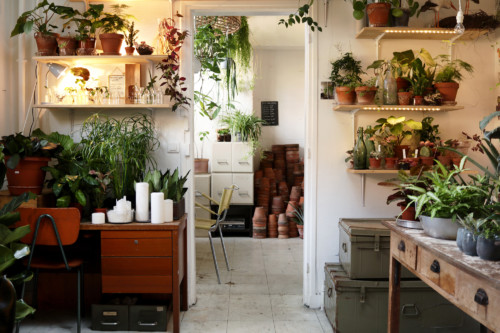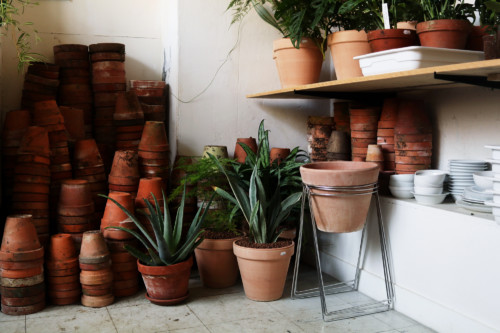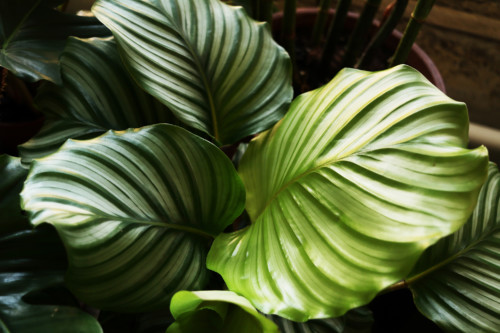
At Mama Petula in Paris, Flourishing Plants Are A Way of Life
At Mama Petula’s, flowers and plants are fussed over as one might expect to fuss over children. In the heart of one Paris’s trendiest neighborhoods, this Parisian concept store recreates the forgotten link between citizens and Nature through the boutique’s enthusiasm and mystical reverence for plants.
In Paris’s 14th district, a disused hospital facility is now the permanent venue to Les Grands Voisins, an ephemeral social diversity project bringing together humanitarian associations, persons in situations of precariousness, different types of artists, and small businesses in a typical but highly convivial
atmosphere.
A dedicated gardener and floral designer, Caroline Ciepielwski set up her workshop there in a former laboratory that has become a concept store open on weekends only. A wide range of plants flourish at Mama Petula, and she takes care of them like a mother hen with her chicks: “I often feel that my plants are my kids! Sometimes I even feel uneasy when they leave and I wonder how they will get on in their new homes.” The name Mama Petula would seem to make sense– all the more so given the fact that the former hospital was originally a foundling hospital.
At the start of her project Ciepielwski converted a van into a mobile welfare unit for plants owned by people she met on cafe terraces. To publicize her facility, she then set herself up for a time at the REcyclerie, a concept restaurant and community hub in the 18th district of Paris.
“It was certainly a sign!,” she tells us. “I moved from running a plant care unit to this hospital, as if my work was at last being recognized. It’s incredible really– back to source!”
Ever the maternal nurturer, Ciepielwski maintains that plants are far from being merely decorative items; they living beings that offer a great deal to mankind.
“When I was doing benevolent work, I was able to entrust diseased plants to vulnerable people who agreed to take care of them,” she says. “That was a powerful symbol. When the plants started recovering, the individuals themselves felt better, too. They were made to feel responsible.”
Perhaps accordingly, when Ciepielwski creates plant-themed decors and scenes for brands, for film sequences, in restaurants, or in offices, the focus is still on the well-being of the plants:
“I do what I can to make them ‘happy’, in such a way that they become in tune with their living conditions. That’s the most important. And I always offer plant care contracts to keep an eye on their development.”
Among the various green projects she undertakes, Ciepielwski admits she prefers “playing shop” in her boutique by creating new decors every week that her nature-greedy customers will marvel at. In her view, Nature remains vital for all of us, and even more so in large towns.
“People are completely won to the cause. They increasingly come back to the boutique so ardent that sometimes I have the feeling I have set up a sect!” she says jokingly. “I offer advice on plant care, I sell plants that require no specific knowledge and that fit their lifestyles and routines. They then take care of them without difficulty because above all it’s a question of common sense. There’s no question of using chemical products. And as for fertilizers: why not make your own compost?” Such are the trappings (and thoughtful considerations) that go into a quest to find the perfect plant for every home.












































